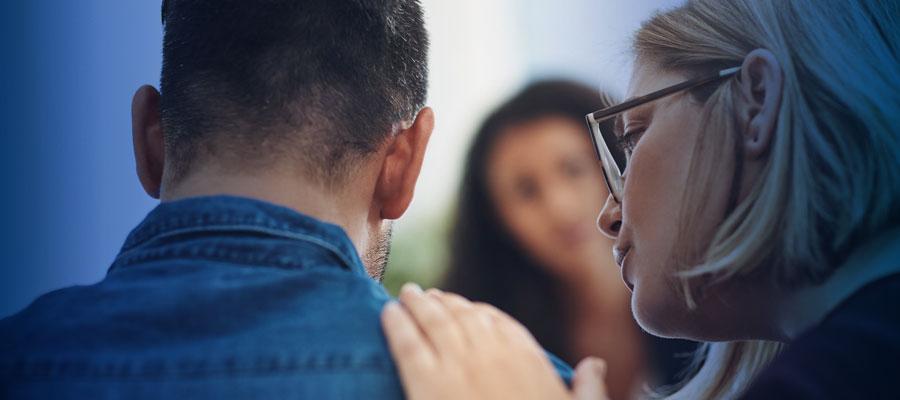Blog: Importance of mental health first aid training rises during COVID-19 pandemic

What is mental health first aid?
Well, first aid – the physical type – is exactly what the name implies: the first attempt to bring aid to someone who is injured. End of story. Many of you have probably taken a physical first aid course – learning how to provide the first attempt to address bleeding, burns, poisoning, shock and respiratory emergencies.
Thankfully, more people are now realizing mental health’s importance. Still, they may not know what to do when someone needs first aid for their mental health. Today, experts are concerned that the COVID-19 pandemic is exacerbating the mental health of both those with pre-COVID-19 conditions, and those in whom the pandemic has triggered a new behavioral health disorder.
COVID-19 Pandemic 101
Let’s talk about stress. Everyone you encounter is somewhere on a spectrum of needing self-help. Our nation is facing multiple crises, 24 hours a day. Then add all of the typical expected responsibilities, such as caring for children, whether they’re still in utero or long since moved out of your home. Then, if you are the adult child of aging parents, you have the stress of caring for them. Even in “normal” times it never stops – the constant caring for others.
But now we are in a full-blown pandemic, with people who must self-isolate, with no visitors or caregivers in hospitals or long-term care units. Our contact with others is extremely limited: no handshakes, no hugs, no tactile reassurance from one person to another. Add to this unemployment, the cost of groceries and medications, and the excessive work hours that employed essential personnel are undertaking just to keep businesses going during these trying times.
Hope in Training
So what to do when you think someone is showing signs of mental illness or using substances in a more frequent and/or harmful manner? Mental Health First Aid training has been created to teach the skills to respond to the signs of mental illness and substance use.
Mental Health First Aid may not include gauze and gloves, but it is a real thing. Being in health care for over 42 years, I know Mental Health First Aid is valuable, necessary and ever evolving into a basic orientation plan for all, but particularly for persons in health care. At my hospital Mental Health First Aid a mandatory program for all leadership and employees coming into our workforce.
The MHFA program is designed for first responders, teachers, social workers, police officer and now hospital staff, and is now being offered in a virtual format.
When your patient is given a cancer diagnosis or a staff member must confront a person that her loved one has passed, who better than hospital staff to give these people mental health first aid to get through shock and life-altering issues? Mental health first aid is needed every day on the inside of some of the most hallowed halls of what we call health care.
Still need convincing that training is right for your hospital or health system? Check out this webinar recording featuring a collaborative effort at Ascension St. Vincent’s in Jacksonville, Fla., to train 10,000 individuals in MHFA. Or, check out this webinar from the American Society for Health Care Human Resources Administration, AHA’s Behavioral Health Services and the National Council for Behavioral Health.
Katherine Bunting is chief executive officer at Fairfield Memorial Hospital in Fairfield, Ill.

